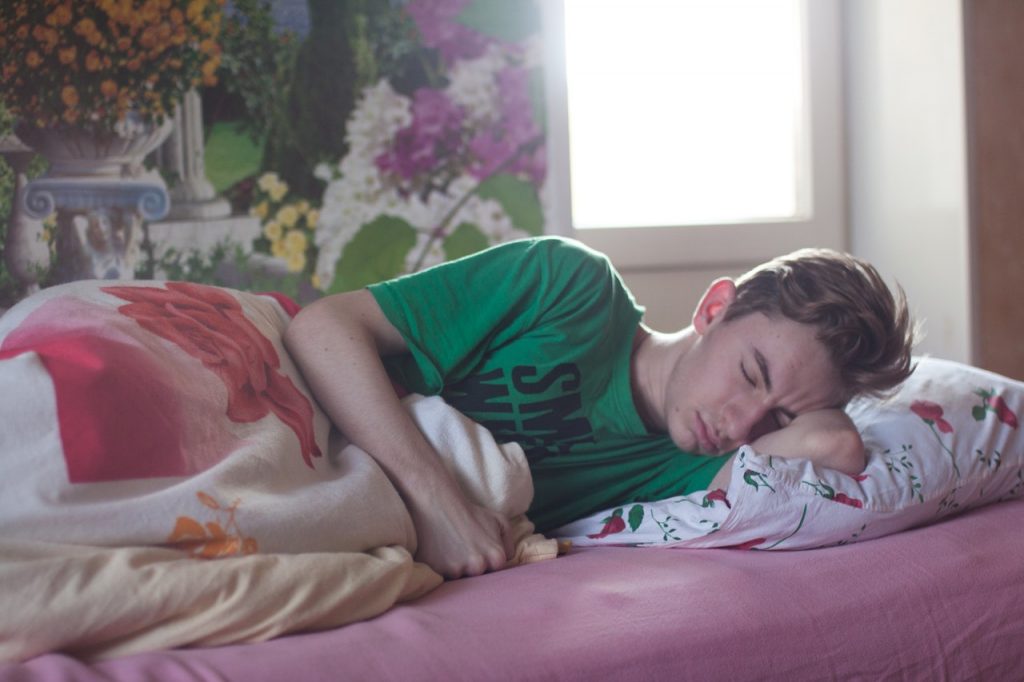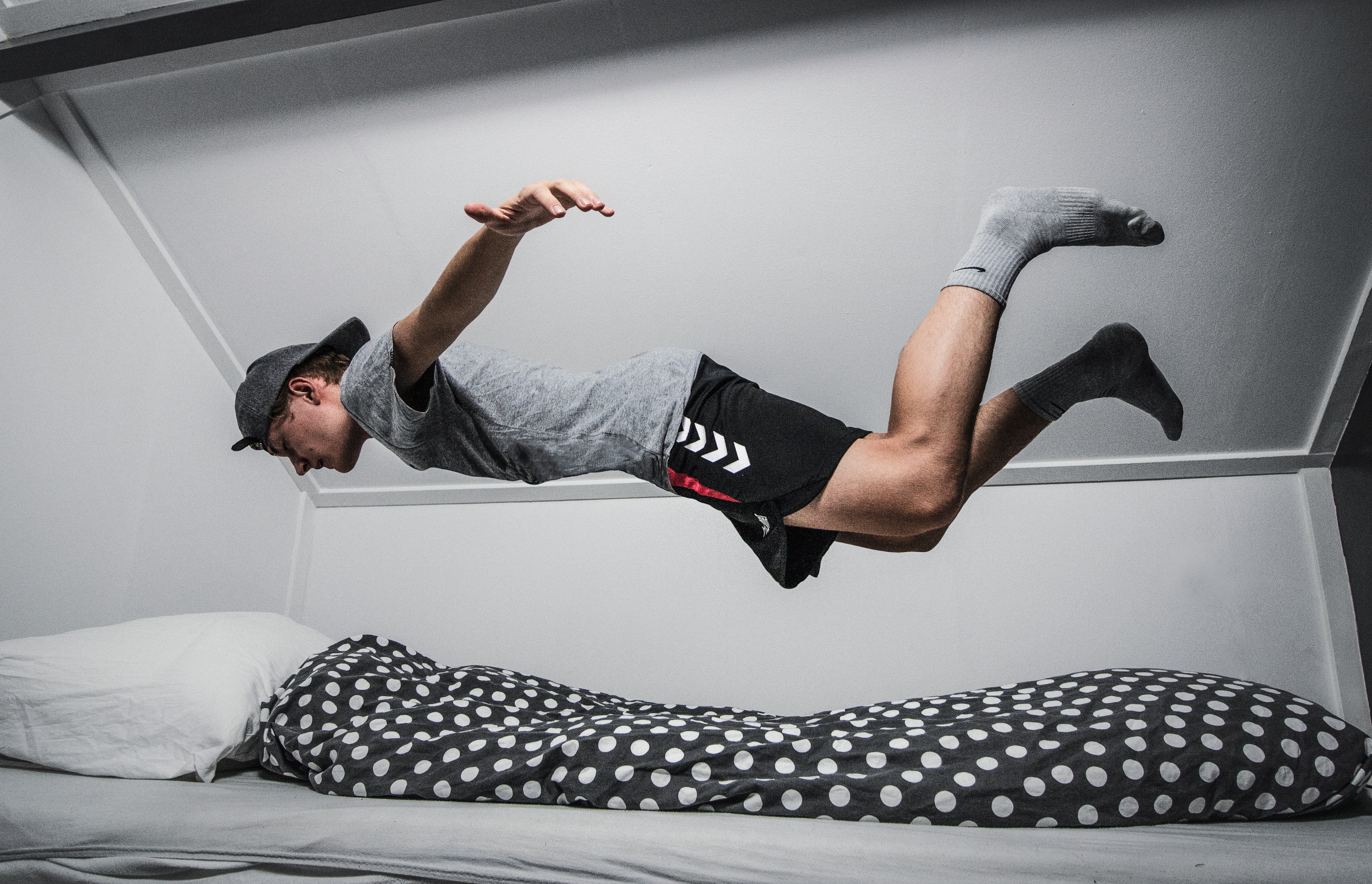It's World Mental Health Day and the focus this year is youth. We're all familiar with teenage moodiness, but have you ever considered that one of the causes of this may be sleep deprivation?
The Problems of Sleep Deprivation in Teenagers
- Research has found a link in teenagers between poor quality of sleep and lack of self-control and aggression. Self-control is like as a muscle that needs to be exercised: it takes effort. Without
sleep the brain becomes too tired to calmly navigate the normal stresses and strains of everyday life. - This lack of impulse control can see
sleep deprived teenagers being more likely to get involved in riskybehaviour such as unprotected sex or reckless driving. - Teenagers may also find it more difficult to concentrate when tired and it is thought they may display symptoms typical of ADHD. These include an inability to concentrate and to focus on one task.
- They may experience low mood due to tiredness. There may be a vicious circle where lack of sleep leads to low mood, which leads to difficulty falling or staying asleep, which detrimentally affects mood.
- This
in turn can lead to self-medication with substances such as caffeine, alcohol, smoking or drugs. - Research has linked sleep deprivation in teenagers with suicidal thoughts and attempts. Lack of sleep leads to extremes of emotion.

Why is Sleep So Important for Teenagers?
1. Maturity
Teenagers need sleep in order for their brains to develop to full maturity. A mature brain is one with well developed cognitive skills, reasoning and critical thinking.
Research has shown that changes to the brain start at the back of the brain and move forward. Thus, brain functions which govern visual and spatial perception are more mature than functions such as reasoning and critical thinking which are at the front of the brain.
The most important thing to note is that the process of maturing the brain takes place during deep, non-dreaming sleep. When there is an increase in deep sleep in adolescents, it is followed some weeks or months later by an improvement in cognition or development.
When juvenile rats had disrupted deep sleep they displayed less social activity, independent grooming and exploration of the environment. Their brain maturation was stunted.
2. Learning and Memory
The brain has a short term and long term memory stores. During the day new experiences are filed in
Problems in Sleep for Teenagers
For
Simply put, teenagers do not need to go to bed early. Their internal sleep cycle keeps them awake later than their parents and their younger siblings. At a time when their parents are ready for bed, young people are still at a state of peak wakefulness. Their body may not be ready to sleep until the early hours of the morning. However willing they are to try to sleep, they have not yet generated enough sleep pressure to be able to do so.
However, once they are ready to sleep, they still need a certain number of hours sleep and their body clock is set to wake up later than the rest of their family. This is why teenagers can be so moody in the morning. Waking them up at seven is the equivalent of a parent's alarm going off at four or five am. Teenagers are not being lazy and they don't mean to be unpleasant or grumpy - they need to be asleep! Unfortunately, the world is not set up for teenagers' sleep cycles and so they are expected to be awake and at school when perhaps their body is still telling them to be asleep.
How Can Parents Help their Teenagers with Sleep?
The first step is to accept that teenagers have a different biological rhythm to our own. It may be helpful for you to have a discussion with your teenager around the purpose of sleep for their developing brain and see if you can find ways to encourage them to get enough sleep. For example:
- Is it possible for them to be organised the night before school so that they can leave it as late as possible to get up?
- Can you agree that they
be allowed to sleep undisturbed into the morning at weekends? - Examine whether they are using caffeine as a stimulant, for example in energy drinks or coffee, and ask them to research how this affects their sleep.
- Discuss the effect of blue light from electronic gadgets and suggest they have some downtime away from devices for an hour before they sleep. They could relax and unwind by listening to music or reading instead.
- A dark, cool,
gadget free room is best for sleep. I know - good luck with that! Perhaps the best way to encouragenon use - Encourage them to spend time outside. Half an hour in sunlight every day helps to regulate sleep patterns.
- Regular bedtimes
helps the body to sleep.
The following is a strong warning from Matthew Walker, the author of Why We Sleep:
"It's very easy for parents to feel frustrated, ... since they believe that their teenager's sleep patterns reflect a conscious choice and not a biological edict. But non-volitional, non-negotiable, and strongly biological they are. We parents would be wise to accept this fact, and to embrace it, encourage it, and praise it, lest we wish our own children to suffer developmental brain abnormalities or force a raised risk of mental illness on them"
The Good Enough Mum is a service to help parents both with their feelings about themselves and their feelings about parenting. If you'd like to know more about counselling, please feel to contact me.
Photo by Floris Jan-roelof on Unsplash

